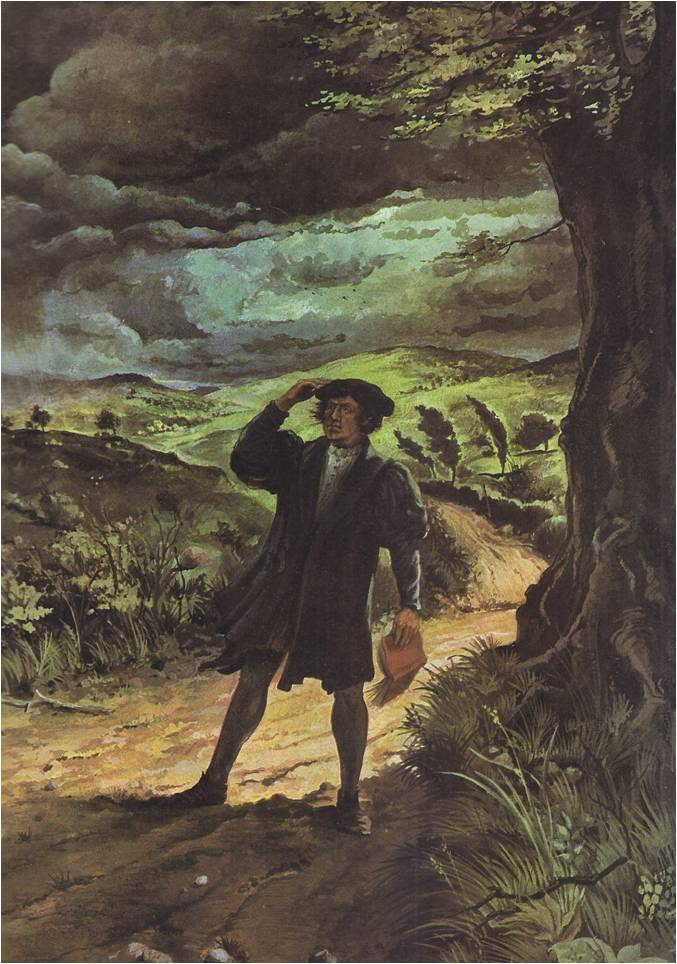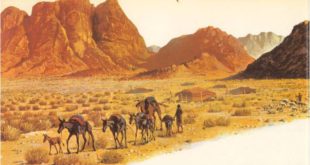Now Hiram, King of Tyre, sent his servants to Solomon, when he heard that they had anointed him King. . . And Solomon sent word to Hiram, “ . . . I purpose to build a house for the name of the Lord my God. . . Now therefore command that cedars of Lebanon be cut for me; and . . . I will pay you for your servants such wages as you set; for you know that there is no one among us who knows how to cut timber like the Sidonians [people of the city of Sidon].” . …
Read More »A House Divided 1833 – 1859
BEFORE ELI Whitney invented the cotton gin, Southern plantation owners were beginning to wonder if they should not give up their slaves. There was a good market for cotton; the English were buying all the cotton they could get to make into cloth in their new factories. It took too long to separate raw cotton from the seed and raising cotton simply did not pay. If the plantation owners stopped raising cotton, they would really have no need for slaves. Then after the invention of the cotton gin, raising cotton began to pay — and pay well! Cotton became the …
Read More »The Monk from Wittenberg 1505-1546
ON A SULTRY JULY DAY IN 1505, a young law student, Martin Luther, was walking along a country road in Germany when a summer storm blew up. The air grew heavy and black clouds filled the sky. Before Luther could take shelter, thunder began to crash. A bolt of lightning struck the road almost at his feet. Thrown to the ground, he lay shaking, not certain whether he was alive or dead. “Help me, Saint Anne,” he cried, “help me and I will become a monk.” After a moment, Luther’s trembling stopped. He stood up, found that he was not …
Read More »The Church and the Empire A.D. 527-1261
CHRISTIANITY, as the official religion of Byzantium‚ was under the control of the government. The emperor was the head of both church and state and high church officials in the East recognized him as the religious leader of the land. One of them wrote, “Nothing should happen in the Church against the command or will of the Emperor.” The church organization was similar to that of the state. As its head, but under the emperor, was the patriarch of Constantinople, who was appointed by the emperor. The appointment had to be approved by high church officials, but actually they never …
Read More »Byzantine Glory A.D. 610-1057
The period from 610 to 717 was one of the darkest in Byzantine history. During that time, the edges of the empire crumbled under the pressure of powerful enemies. A people from northern Italy, the Lombards, conquered more than half of Italy. In central Arabia, the Arab tribes had joined together under the religion of Mohammed and marched against their neighbors. They took the kingdom of Persia, invaded Palestine and in 658 captured Jerusalem. The conquering Moslems, as the followers of Mohammed were called, swept on and soon took over Syria and Egypt. They marched along the northern shore of …
Read More »The Growing Church 100 – 500 A. D.
AT THE beginning of the second century, the Christian Church was a loosely organized group of independent local churches. There had been no strong leadership since the days of the apostles, no recognized authority to whom they could turn to settle their differences concerning the faith. Paul’s epistles had cleared up many points for them, but new questions were constantly arising. The Roman church had been taking a leading role for some time. There were a number of reasons for this. According to tradition, both Paul and Peter had died in Rome. It was the only church in the western …
Read More »The Resurrection and the Faithful Few A. D. 29 – 35
JESUS lived and died a Jew. Like the ancient Hebrew teachers, he urged people to love God and to love their neighbours. He left no writings of his own. His public ministry was short, possibly not as long as two years. It seems probable, therefore, that his influence on world history might not have been nearly as great had his story ended on the cross. The gospel story does not end with his crucifixion. He died on Friday. To speed the death of those crucified on Fridays, so that they could be buried before the Sabbath, the legs of the …
Read More »The People of One God 3000 B. C. – 30 B. C.
On the plains of Mesopotamia, a young man stood gazing up at the stars that glittered from the dark sky of night. He was Abraham, a native of the Sumerian city of Ur. Abraham was a Hebrew, one of the many tribes of Semites said to have been descended from Shem, the son of Noah who had been saved from a great flood many years before. Like all people of his time, Abraham believed in many gods throughout nature. As he studied the pattern of the great stars for the god’s message, Abraham began to feel he was in the …
Read More »






